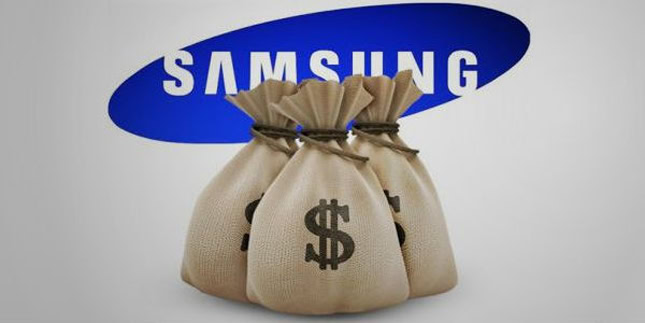Affiliate links on Android Authority may earn us a commission. Learn more.
Blaming Nokia deal, Samsung doesn't want to pay Microsoft royalties anymore

If I told you that Microsoft makes 5 times more money annually off of Android than it does Windows Phone, many would probably wonder “how/why/huh?”. Not only is it true that Microsoft ironically makes a whopping 1.6 billion dollars a year off of Android (about 5 times more than it does from Windows Phone), it’s also pretty safe to say that Samsung, the reigning Android market leader, is paying quite a large bulk of that amount to Microsoft. But maybe instead of “is” I should now use the word “was”, as Samsung has recently declared that they will no longer pay Microsoft royalty fees for Android. The reason? Microsoft’s purchase of Nokia.
Microsoft is raking in billions off Android
Back in September of 2011, Samsung and Microsoft reached an agreement on a cross-licensing deal for Android phones and tablets, which included Samsung agreeing to pay Microsoft a set amount of royalties for specific patents used. Fast-forward to the end of 2013, which is when Microsoft announced that they would be purchasing Nokia’s mobile division for 7.2 billion dollars. Interestingly enough, Nokia went with Microsoft instead of Android because they feared Samsung would dominate the market if Nokia also ran under the Android name. Samsung did however did go on to dominate the market, Nokia didn’t do so well, and here we are now. So why exactly is Samsung refusing to pay previously agreed upon royalty fees?
To understand the reason behind this, you have to keep in mind that back in 2011 when a cross-licensing deal was reached, the two companies also reached an agreement on something else: To cooperate in the marketing and development of Windows Phone. That naturally would involve Samsung sharing some sensitive information with Microsoft. The deal also stated that royalty fees for Android would be reduced, provided that Samsung could reach specific sales targets for Windows phones.
Crying foul
Samsung is now crying foul, stating that the purchase of Nokia has now made Microsoft a direct hardware competitor. Because of this, Samsung feels that cooperating with Microsoft and openly sharing sensitive information is no longer possible, and that it directly violates the terms of the original 2011 agreement. Samsung also stated that it could create US antitrust issues, and filed that “The agreements, now between competitors, invite charges of collusion”.
The agreements, now between competitors, invite charges of collusion
Microsoft is so far very confident that the original agreement will stick, and stated that they feel they have a very strong case. The Redmond company is also seeking around 7 million dollars in damages as punishment for Samsung’s late payment of the billion dollar royalty fee from last year.
I can certainly understand both sides in this issue. Microsoft is entitled to royalties, as there are Microsoft patents in use with most Android devices. But did the original agreement reached in 2011 stipulate that Microsoft becoming directly involved in mobile hardware would be grounds for voiding the deal entirely? Samsung, who currently has their fair share of problems, also has a point. How can Samsung, the most dominant Android manufacturer in the world, share hardware secrets with a partner/now competitor company that develops their own hardware and software within the mobile sector?
I’m interested to hear what you guys think about all of this, so be sure to share your opinions in the comments below.